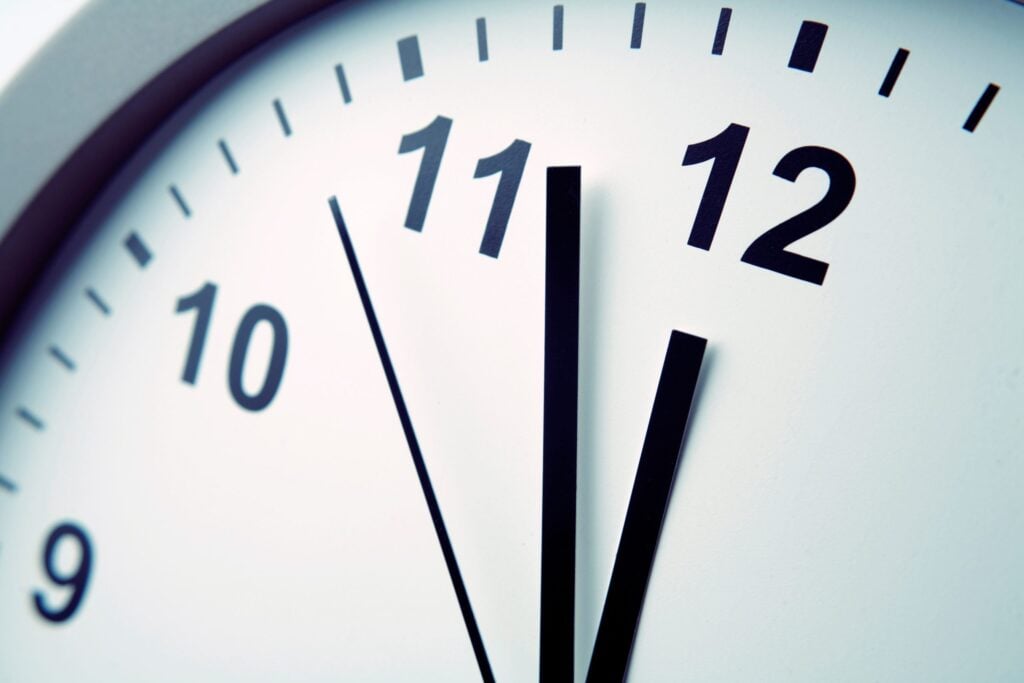
Credit: Adobe Stock
People Shocked After Learning What ‘O’ In ‘O’Clock’ Actually Means
People are shocked after learning what the ‘o’ in ‘o’clock’ stands for.
It’s a word most of us say multiple times a day without thinking, but now, people are surprised to learn what it actually means.
The viral discussion began when a user posted a simple question on Threads: “What’s the meaning of ‘o’ in o’clock???”
Their query quickly caught fire, drawing a wide range of guesses from the internet.

People offered various interpretations, suggesting possibilities like ‘zero,’ ‘Omega,’ and even ‘oida,’ which is a Viennese term for ‘old person.’
For many online, this small linguistic revelation was mind-blowing. As one commenter put it: “Now I want to know its origin,” expressing the curiosity sparked by such a commonly used but little-understood term.
As the comment section filled with speculation, a few users pointed out a more historically grounded explanation: the ‘o’ is actually a shortened form of the word ‘of.’
One user elaborated: “At the invention of the clock, many people used the sundial, so to make the distinction, many people using the clock would state it’s ‘of the clock.’”
In other words, ‘3 o’clock’ originally meant ‘three of the clock,’ signifying the time shown specifically on a mechanical clock rather than estimated through sun positioning or other methods.
John Brown, posting under the handle @johnbrown2812, confirmed this theory: “The phrase ‘o’clock’ is a contraction of ‘of the clock,’ which was historically used to specify the time according to the clock.”

To back up this claim, the Britannica Dictionary also notes that the apostrophe in ‘o’clock’ reflects this contraction.
“An apostrophe is used in o’clock because the word is a contraction of the phrase ‘of the clock,’” they explain.
Interestingly, ‘o’clock’ isn’t the only example of a common phrase with surprising roots.
Merriam-Webster highlights that even ‘OK’ has an unexpected history.
In the early 1800s, American humorists popularized quirky spellings, intentionally misspelling words for comedic effect.
“‘All right’ became ‘O.W.,’ as an abbreviation for ‘oll wright.’ And ‘all correct’ became o.k., as an abbreviation for ‘oll correct,’” they note.
So next time you say, ‘It’s 5 o’clock,’ you’ll know you’re actually referencing a phrase steeped in centuries-old tradition.
Related Article: People Are Only Just Realizing What The Fourth Side Of The Cheese Grater Is For
Related Article: People Are Only Just Realizing What WC Toilet Sign Actually Stands For
Want more stuff like this?
Get the best viral stories straight into your inbox!